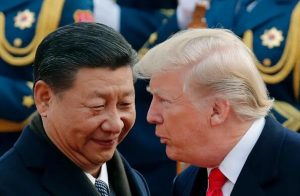BlackRock’s $22.8B acquisition of Panama Canal ports has pleased Trump but sparked backlash in Beijing. China’s concerns center on lost leverage and lack of prior approval from CK Hutchison.

A controversial $22.8 billion port acquisition led by BlackRock has positioned the U.S. investment giant at the center of a geopolitical tug-of-war. While the deal has drawn praise from President Trump, it’s reportedly angered Chinese leadership, particularly President Xi Jinping.
The transaction, which gives a BlackRock-backed consortium control of two major ports flanking the Panama Canal, comes at a sensitive time. The ports were previously owned by CK Hutchison, a Hong Kong conglomerate controlled by 96-year-old tycoon Li Ka-shing. According to reports, CK Hutchison moved forward without seeking prior approval from Beijing — a move that has drawn backlash from both Chinese officials and pro-Beijing media outlets.
State-linked publications such as Ta Kung Pao accused CK Hutchison of prioritizing profit over national interest, while Hong Kong’s Chief Executive John Lee called the deal deserving of “serious attention.”
President Trump had previously called for reclaiming control of the Panama Canal, alleging Chinese interference. Sources say BlackRock CEO Larry Fink reached out to the White House directly, proposing that a private U.S.-led acquisition could address the concerns — avoiding a more forceful government intervention.
Under the proposed deal, Oracle-style safeguards would be applied to protect U.S. national security. Bloomberg reported that the White House may permit BlackRock to take a stake in the new port operator, while CK Hutchison retains a more limited role.
Chinese regulators are now reviewing the deal closely for potential security or antitrust risks, and Reuters suggested that non-Chinese investors in ByteDance may step in to create a U.S.-compliant ownership structure.
The acquisition is part of a broader portfolio expansion by BlackRock following its $12 billion purchase of Global Infrastructure Partners (GIP) in 2023. GIP is co-leading the deal and would help manage a network of 43 ports in 23 countries — not just the Panama locations. BlackRock CEO Larry Fink clarified this point in a recent speech, noting that the Panama ports make up only 4% of the deal’s total value.
Despite rising political pressure, Fink emphasized the long-term returns of port infrastructure, projecting yields of 15% to 16%, even with ongoing tariffs and global tension.